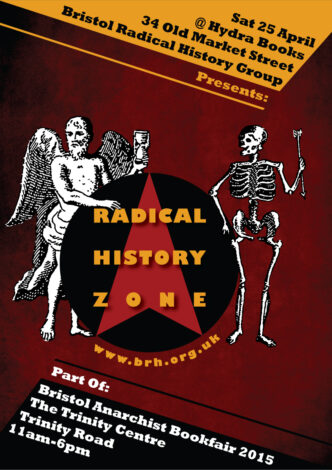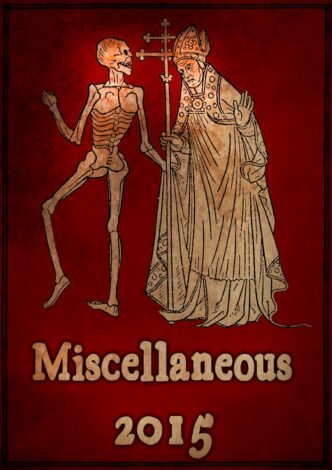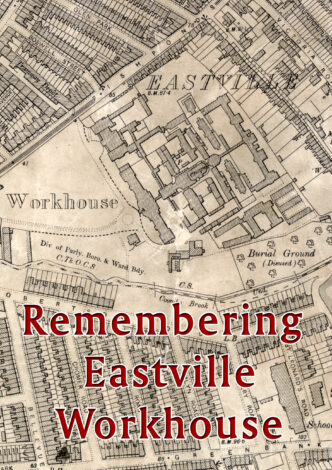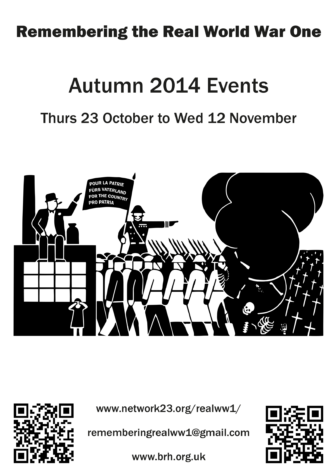Members of our very own Bristol Radical History Group will share some choice snippets from their research as an appetiser to promote two new publications, including the group’s first book-length collaboration. Strikers, Hobblers and Conchies is published by Breviary Stuff. Watch this talk
All Out! Dancing in Dulais! tells the story of London Lesbians and Gays Support the Miners, a group which twinned with a mining community in South Wales. The inspiration for the recent film Pride, it is one of many examples of grassroots film-making during the 1984-5 British miners' strike. After watching the documentary, we will discuss the broad range of solidarity activism during one of the most significant strikes in British labour history: trade unionists, feminists, black activists and […]
Includes a screening of 18-minute documentary The Law Breakers (1973). Mac will begin by giving a brief personal/political history of what motivated him to get involved. He will be covering the squatting campaign that took place between 1972-1974 in Ashley Road Bristol, and direct action taken like the occupation of The South West Electricity Board showrooms (SWEB,) for example. The BBC West documentary will feature previously homeless single parent families, a support meeting by 'Bristol […]
Siegi Moos was an active anti-Nazi 1928-1933 in Berlin, a time which ended with the Nazis gaining power and Siegi going underground, before escaping Germany altogether. Little publicity is given to anti-Nazi movement in Germany, which Siegi’s activities shed light on. Although many of the organisations which make up this movement were originally established or supported by the German Communist Party (KPD), they were in practice semi-autonomous. Indeed, the Red Front, a crucial - and from 1929, […]
The 1984/5 Miners’ strike changed their lives and for the feisty Women Against Pit Closures there was “No Going Back!” Anne-Marie Sweeney’s film Going Through the Change!, made for National Women Against Pit Closures (NWAPC), shows a fearless, feisty movement that has reverberated throughout the struggles of working-class women over the past 30 years. Not confined to the miners’ strike of 1984-85, the film reveals how members of WAPC have never stopped supporting other women in solidarity. The […]
A meeting for those interested in raising money to get a memorial put on Rosemary Green to the people that died in Eastville Workhouse and were buried in unmarked graves.
Documentary, talk and discussion David Olusoga's recent documentary The World's War challenged perceptions of WW1 with the stories of the millions of Indian, African and Asian troops who fought and died alongside white European troops on the western front and elsewhere. Using letters and diaries writer-director Dominic Rai brings to life the experiences of Indian soldiers in Flanders, popularised in the acclaimed novel Across the Black Waters by Mulk Raj Anand. Watch this talk:
Class cohesion and spurious patriotism: trade union internationalism in the First World War In this talk Kevin Morgan considers the trade union radicals who from the earliest months of the war took up an internationalist and anti-war stance, and who gathered increasing support as the war went on. Their contribution to the anti-war movement has often been overlooked because of the unions’ majority pro-war stance. Nevertheless, this minority tradition was to receive a further stimulus with the […]
The Bristol Deserter – Alfred Jefferies – His War Story During World war One nearly 300 British soldiers on the Western Front were shot at dawn for deserting or for ‘cowardice’. One victim, Alfred Jefferies, a Bristolian, was executed on 1st November 1916. Based on official archives, including war diaries and court martial records, Geoff Woolfe describes Alfred’s tragic war story, whilst questioning the extent to which the full facts of some war events can be known. Freedom of Soul Two weeks […]
In a long tradition of Opening the Archives events the excellent Central Reference Library staff have done us proud in presenting a collection of primary sources relating to resistance and reaction during World War One. So come on down and sample the actual sources in the Bristol Room, from anti-war posters, flyers and pamphlets to jingoist vitriol. Highly recommended.



